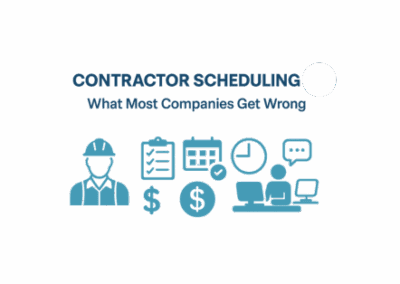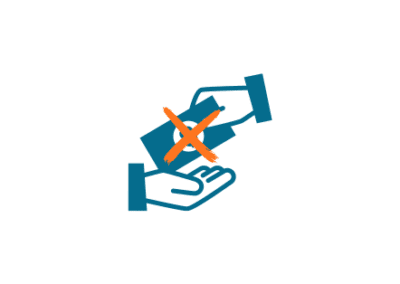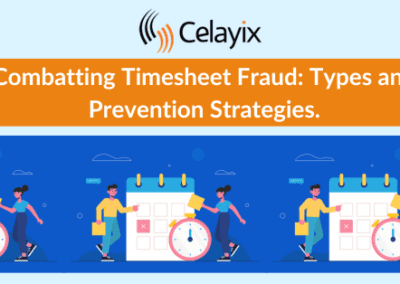Organization
Four Seasons Healthcare
Four Seasons Healthcare is a home healthcare service provider operating across Pennsylvania and Delaware. Since its founding in 2010, the organization has prioritized caregiver support as the foundation for exceptional patient care. With a team led by Founder and CEO Richard Koster, Four Seasons Healthcare blends medical expertise with strong business leadership to ensure both clients and their families experience peace of mind.
Supporting this mission is a tightly integrated team of professionals, including Ronda Somerville, the Director of Non-Clinical Services and Patient Support. With clinical credentials as a Certified Nursing Assistant (CNA) and Emergency Medical Technician (EMT), and deep experience in long-term care across the state, provider, and insurer levels, Ronda brings both compassion and precision to the operational core of the business. She oversees critical functions such as scheduling, recruiting, training, administration, billing, and compliance. Richard credits her ability to balance empathy with firmness, guiding caregivers with support while ensuring accountability.
Their team of registered nurses (RNs) is at the heart of their care delivery model, supported by systems and processes designed to reduce burnout and empower them to focus on patients. In a healthcare industry facing persistent staffing turnover, Four Seasons Healthcare has remained steadfast in its caregiver-centric philosophy.
This case study explores why Four Seasons chose Celayix to help reinforce that mission, leveraging smart scheduling and workforce management to support their RNs, improve retention, and deliver consistently high-quality care.
Location: Wilmington, Delaware, USA
Industry: Home Healthcare
Company Size: 50-200 employees
Challenges
Four Seasons Healthcare operates in a highly competitive industry. Due to the nature of their work, nurses work remotely in patients’ homes. As a result, it was difficult to communicate schedule and availability changes and monitor motivation and performance.
For them, employee motivation has always been crucial to their success. As their Managing Director, Richard Koster says: “Happy caregiver equals happy patient.” They wanted to invest their resources in recruiting motivated workers, incentive programs, and better scheduling processes. They also wanted to keep costs low and sustainable due to the volatility of the industry.
Retaining Staff Amid Crisis, and Making the Economics Work
Even before COVID-19, the home healthcare industry was facing an uphill battle with staffing retention. “This industry has always had a high staff turnover rate…around 80%,” said Richard Koster, Founder and CEO of Four Seasons Healthcare. But when the pandemic hit, things got significantly worse. The company lost roughly 60% of its caregivers, primarily through natural attrition, leaving remaining staff stretched thin and patient care at risk.
What followed was a critical realization: those who were picking up more hours tended to stay longer. “We discovered that the more hours people worked, the less likely they were to leave us,” Richard explained. “If they’re able to earn a larger paycheck and feel like their time is valued, they’re more inclined to stick around.”
This insight sparked a shift toward a more flexible, caregiver-centric strategy, one that didn’t cap overtime but instead managed it in a way that balanced employee satisfaction with operational sustainability. It aligned well with Four Seasons’ business model, where each hour of care is directly billable. “As long as the cost of the overtime hour doesn’t exceed what we’re billing for that hour, we’re not losing money. It’s a 1-to-1 ratio,” Richard shared. This approach differs from fixed-cost care models like nursing homes, where overtime eats into profitability due to flat patient rates.
However, while the logic was sound, operationalizing it posed a new challenge. Managing overtime at scale, while ensuring staff availability, compliance, and avoiding burnout, was no simple task.
We are a caregiver centric business. A large part of that has been driven by the Celayix mobile app.
Richard Koster, CEO
Solution
That’s where Celayix came in. Their scheduling solution gave Four Seasons Healthcare the visibility, control, and automation needed to confidently implement this new strategy, matching the right caregivers to shifts, optimizing schedules, and making overtime both manageable and sustainable.
With scheduling features like self-scheduling, managers could easily publish shifts needed for patient care. Some shifts included certain qualifications or requirements, too. Workers simply signed onto the mobile app and picked shifts according to their own schedule and availability. With increased scheduling autonomy, employees had a better work-life balance which helped enhance the delivery and quality of patient care. Overall, the Celayix system had a positive impact on the organization and most importantly, the caregivers.
Results
Increased employee autonomy and motivation through self-scheduling
Richard emphasized how their scheduling model offers caregivers complete control. “You can work when you want, where you want, earn more money and feel less exhausted,” he said, referring to a scene in their promotional videos that demonstrates how easy and accessible the process is. He explained that unlike most competitors, “We don’t worry about [assigning overtime],” which allows caregivers to choose their shifts on-demand via mobile.
He contrasted their approach with traditional models: “Most other companies, first of all, don’t offer overtime. When they might let people work overtime, they would have to assign it.” Richard added that many competitors rely on a central scheduler, whereas at Four Seasons Healthcare, “Rather than having one scheduler, you have dozens of schedulers because [the caregivers] are doing the scheduling.”
This autonomy, Richard believes, not only increases caregiver satisfaction but also ensures higher coverage of shifts. He mentioned, “We typically miss three in every 1000 shifts, and that’s where we actually can’t get anybody to shift.” Here, Celayix’s mobile platform allows them to instantly notify caregivers about urgent openings with incentives like time-and-a-half pay.
As a result, the self-scheduling process was very satisfying for both management and employees. Management ensured patient needs were met by specifying qualifications in published shifts. The process also freed up time for management to focus on other aspects of the business, like recruitment.
For employees, they could now choose shift times and locations that fit their schedules. Self-scheduling also allowed them to have autonomy over the number of hours they wanted to work. This resulted in an increase in employee satisfaction, and subsequently performance meant higher quality patient care.
Rather than having one scheduler, you have dozens of schedulers because [the caregivers] are doing the scheduling.
Richard Koster, CEO
Improved communication and transparency
With a remote workforce, the Celayix apps provide a better medium for communication between employees and management. Employees could easily submit their availabilities in the app. Management would receive notifications for any changes and can consider all availabilities when it comes to scheduling. Management can also see when employees are checking in and out of their shifts at a glance.
Utilized data for business acquisition and growth
A standout feature of Four Seasons Healthcare operations is the emphasis on punctuality. “We measure punctuality, and nobody else does that,” Richard said proudly. “We produce a table every month of all the caregivers and their punctuality for the month.”
“Punctuality is a really good proxy for how good the care is.”
Richard Koster, CEO
They aim for an 85% punctuality target. “If you’re at 100% punctuality, you’re probably a great caregiver. If you’re always below 85%, you might be good, but you’re not the best,” he stated.
Now, scheduling, time and attendance data are all being recorded and kept in the Celayix system. Using reporting, Four Seasons Healthcare could see improvements in employee punctuality and attendance. They were able to leverage this data to stand out against competitors. Currently, they post their company’s punctuality data including the Attendance Rate, Punctuality Rate and Utilization Rate (for MCO Case Managers) every month using Celayix’s Reporting Functionality.
“The only way you can differentiate is how good you are”.
Richard Koster, CEO
Integration with Sandata EVV
Starting December 30, 2022, providers of Personal Care Services (PCS) and Home Health Services (HHS) were required to use an Electronic Visit Verification (EVV) system to make sure patients are receiving caregiver services in their homes. EVV is an electronic way of capturing the time a caregiver starts and ends the services they provide to you during a visit.
With EVV becoming mandated on a state-to-state basis, Four Seasons Healthcare was requiring some support in finding an open vendor that can integrate into Sandata’s data aggregator. Celayix decided to support this project for them and take the lead in helping Four Season Healthcare with compliance with both federal and state-specific guidelines.
Richard expressed satisfaction with Celayix’s features and praised the implementation of Electronic Visit Verification (EVV). “The EVV thing really was a great job by your team,” he said. He highlighted the improvements from manual time sheets to digital signatures, shift tasks, and mobile clock-ins.
Richard felt that the integration with Sandata’s state-mandated EVV system is nearly seamless. “We probably see less than 2% of shifts [caregivers] failed to clock out.”
Final Thoughts
Four Seasons Healthcare is now in the process of transitioning to Celayix’s modern platform, Schedule Xpress, while still relying on eTime Xpress for legacy reporting needs like pivot tables, payroll, and billing exports. “I always use eTime. That’s where it’s incredibly powerful… punctuality reports, payroll, billing… all this management information is really good in eTime,” said Richard Koster.
Still, the demo of in-platform analytics within Schedule Xpress caught his attention. When shown how the platform could generate custom overtime reports and deeper insights, his response was simple: “Brilliant.”
Today, Four Seasons continues to stand out in a competitive industry, not just for the quality of care they deliver, but for their commitment to supporting caregivers at the core of their business. That reputation has become one of their greatest marketing tools, helping reduce advertising costs and attract new patients organically.
The impact of Celayix on their operations has been multi-dimensional: improved caregiver satisfaction, better retention, stronger shift coverage, and ultimately, higher-quality patient care. On the business side, it’s translated into cost savings and sustainable growth.
But perhaps the most compelling takeaway is this: caregiver-first doesn’t have to mean business-last. With the right tools, like Celayix, operational complexity can be simplified, and compassionate care can be scaled. For organizations facing high turnover, rising costs, or burnout across their teams, Four Seasons Healthcare’s journey is proof that investing in people, and the systems that support them, can change everything.



